Conference features
-
4 days
-
700+ attendees
-
20+ top-notch
speakers -
2 parallel
tracks -
workshops, discussions,
lightning talks -
afterparty
For speakers
Join us and share your experience on the suggested topics:
- Go — the language for high-level product development: how to write complex business logic in Go.
- Testing the not-so-dynamic language: the correct way to apply interfaces, mocks and testing frameworks.
- Clean architechture: what could go wrong.
- How to rewrite everything in Go and not drag the legacy from your old stack.
- Monolith, or There and Back Again. How to split the monolith into services and what to do if there are too many.
- Code generation: examples of real application of different utilities.
- Speeding up standard service development: project templates and frameworks.
- Full package: how to develop a service from requirements to rolling out. Go specifics.
- Custom linters: how to write them quick and easy, and why you people them at all.
- When you're safe to be unsafe: when unsafe is useful and pitfalls are there.
Online format allows us to have an unlimited number of parallel streams. It means that even if you have a talk that doesn't fit to any of the aforementioned headlines, don't hesitate to apply anyway!
Talk formats:
- You record your talk and we stream it. As it streams, you are commenting it and replying to questions from the audience and program committee. It's possible to discuss one of your earlier talks as well, to see what changed in the light of the latest changes in the industry and language.
- If the discussion along the talk doesn't seem fitting to you, we have the means to stream it and provide the space for moderated discussion of it afterwards.
- In case you prefer speaking live, you can prepare a live presentation, and we will take care of high quality streaming as well as a host and a moderator so that you can comfortably interact with the audience.
- We see live presentations as follows: the talk is divided into short sections and each of them ends with questions to the audience. This will make our gloomy Zoom days more lively and fun. And we'll support the active audience with awards for best answers. This format is experimental and we can't tell how successful it's going to be, but we are ready to try!
- Online masterclasses aren't really different from their offline counterparts. The only caveat are possible technical issues, but we will apply our expertise and dedication to solve them. We are looking forward to your masterclasses proposals!
- If you have a question that is calling for a discussion or a roundtable, let us know! We'll provide the space and experts for it. Do you already have suggestions for the list of people you'd like to see there?
What are the technical requirements to the presentation?
- Ideally, the talk is 20-30 minutes long. Our experience shows that it's difficult for most speakers to hold the attention of the audience for longer.
- Lightning talks should be 7-15 minutes long.
- Any format should consider that the follow-up questions will take about 15-45 minutes after the talk is over.
What do we expect from your proposal?
- Aside from the traditional theses, we'd like to see a short summary of your talk in 2-3 paragraphs. If you need help with it, reach out to us: we'll do our best in helping you prepare it.
- We will ask you for a promotional video for your talk, 1-2 minutes long. Sit in front of a camera and tell your future audience, what to you want to share with them. Phone camera works too - the quality is not so important at this stage, we are more interested in you.
What's the difference between online and offline conferences?
First and foremost, the speaker has no opportunity to be on stage and feel the inspiration from seeing all the people that are going to listen attentively to their talk for the next half an hour. Another important point: people will want to discuss what they have just heard between themselves, but this notion will be challenged by distractions that we all face while being remote. These factors create a set of challenges very unique to online conferences.
This is why this year we decided to put the talks together into one story that we want to tell and concentrate on problems that enterprise engineers face regularly, but don't discuss enough.
In no way this means we are not ready to accept talks about interesting projects and language nuances! We are planning an additional stream for people interested in exotic problems, hardcore optimisations and peculiar tasks.
How is it different from a webinar?
We want to avoid the format of a "talking head" and create as much involvement as we can. We know how to provide feedback from the audience, involve people into conversations and set the stage for behind-the-scenes discussions on topics we encounter every day.
Our moderators and hosts will fill the possible awkward silence and will help pick the most interesting questions from the attendees.
Apply
Call for papers
All applications must be submitted by September 1st. The list of the talks approved by the Program Committee will be announced on September 15th.
Submit your proposal here-
What kind of help you can expect from us
- We'll provide an assistant who will help you prepare the talk. There's no need to credit them :)
- We'll help with recording and editing the video when needed.
- If high intensity formats are more preferable for you, we will help break down the talk into sections. You can agree on a list of questions with our host to keep intrigue going as well!
- You can count on us: we'll help you solve any issues in the talk preparation, technical as well as creative.
Program committee
The program is designed by the active members of the Russian-speaking Go Community. The selection of talks is multi-layered and sophisticated — the Program Committee selects the best talks from the received proposals according to several criteria.
-
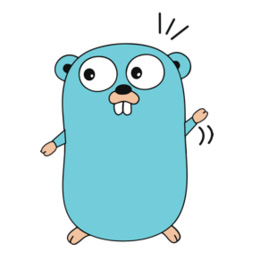
GopherGo language mascot
-
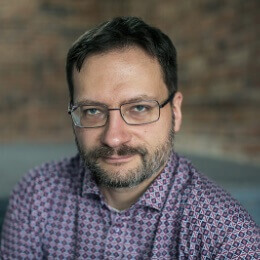
Public appearances expert on technical topics. Coaching speakers of our conferences since 2015. Before working on presentations, Roman worked in development at Intel (2004-2008) and in the Yandex search engine (2008-2015).
Roman PoborchyProgram Committee Coach
-
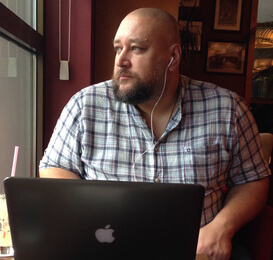
Golang evangelist and software engenier in AnchorFree company.
Daniel PodolskyAnchorFree Inc, Golang evangelist
-
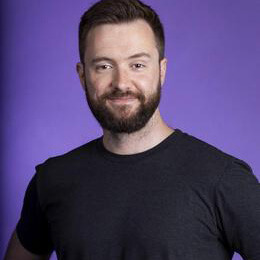
Team Lead in Platform departament at Badoo. Uses Go from 1.0 release. Brought Go and promoted it’s usage at the company. Author and speaker. Hardcore systems engineer. Doesn’t like GC.
Marko KevacBadoo, Team Lead in Platform departament
-
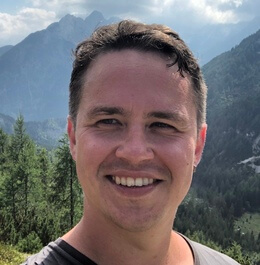
Andrey is a Tech Lead at DCMN, an ad-tech company based in Berlin, Germany. He still remembers the time when Go 1.0 was just released. Before that he used to write C, Ruby, Perl and PHP, and still finds it mildly embarrassing.
Andrey SlotinDCMN (Berlin), Tech Lead
-
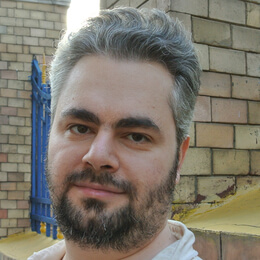
Software developer since 1989, Linux user since 1994. Since 2001 - a full-time freelancer (usually working on big projects in a combination of roles of the Architect, Team/Tech-Lead, Senior Developer and DevOps). Mostly working on software architecture and backend web-development using Go and microservices.
Aleksander EfrosMT Group
-

He likes to create a backend for large and sophisticated web projects.
Aleksey AkulovichVK, Principal backend dev
-

Started career back in the last century with development in VHDL and C++ languages, for a long time been developing various applications in C, C++, Java, PHP, Objective C, procedural SQL, C # and Perl, built a strong connection to DevOps, afterwards focused on writing code. Interested in large and complex projects.
Alexander ChistyakovSKB Kontur
-
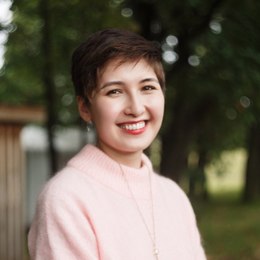
Creating software for 7 years, writing it in Go for 5. In the last 2 years developed a core banking system that corresponds to German financial standards from scratch.
Daria KamenevasolarisBank, Senior Software Engineer
Code of Conduct
We adhere to the standard rules outlined in the Code of Conduct.
Our conference is dedicated to providing a harassment-free conference experience for everyone, regardless of gender, gender identity and expression, age, sexual orientation, disability, physical appearance, body size, race, ethnicity, religion (or lack thereof), or technology choices. We do not tolerate harassment of conference participants in any form. Sexual language and imagery is not appropriate for any conference venue, including talks, workshops, parties, Twitter and other online media. Conference participants violating these rules may be sanctioned or expelled from the conference without a refund at the discretion of the conference organizers.
The complete version can be found at
http://confcodeofconduct.com/
Contacts
If you have any questions, suggestions or comments, please do not hesitate to contact us at
speakers.golang@ontico.ru